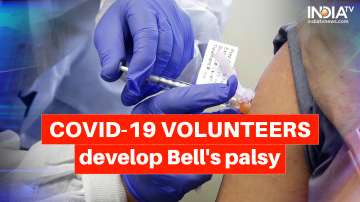A day after the US Food and Drug Administration (FDA) said that Pfizer and BioNTech vaccine showed favourable safety profile, four persons who were inoculated in a trial got Bell's palsy. Britain's drug regulator has reacted to the safety fear as it dismissed the reports of Bell's palsy being associated with the vaccine.
According to reports, four cases of Bell's palsy were found in a group of 21,720 people who had the Pfizer vaccine in the US, compared to none among 21,728 people given a placebo vaccine.
Bell's palsy is a type of facial paralysis. It is a condition that causes weakness of muscles on one side of the face and muscles drop. This happens because nerves stop working properly. It is usually temporary and is resolved on its own.
READ MORE: UK Pfizer COVID-19 vaccine rollout: 90-yr-old Margaret Keenan becomes 1st in world to receive dose
The vaccine, codenamed BNT162b2, has been developed by Pfizer and BioNTech. While Pfizer is a US-based pharmaceutical company, BioNTech is a German biotechnology company.
Following the development, the FDA noted that the four cases of Bell's palsy in the vaccine group do not represent a frequency above that expected in the general population. But it warned that doctors should watch for the side effect and vaccine manufacturers should keep a close tab on how many people it affects.
What is Bell's palsy
The UK drug regulator separately issued a warning for people with a 'significant' history of allergic reactions to medicines, food or vaccines to not have the Pfizer/BioNTech jab. According to Medicines and Healthcare products Regulatory Agency (MHRA), the general safety profile of the vaccine is similar to other types of routinely used vaccine. It said that no vaccine would be authorised for supply in the UK unless the expected standards of safety, quality and efficacy are met.
"There was no reason to believe Bell's palsy was any more likely to happen to people who have had the virus," it said.
A spokesperson said that like all medicines, the vaccine can cause side effects. Most of these are mild and short-term, and not everyone gets them.
Last week, the UK became the first country to approve the Pfizer/BioNTech vaccine against Covid-19, paving the way for mass vaccinations. According to the Medicines and Healthcare products Regulatory Agency (MHRA), the vaccine offers up to 95 per cent protection against Covid-19 illness.
READ MORE: Pfizer-BioNTech vaccine documents hacked in Europe cyberattack, say companies
Latest World News
